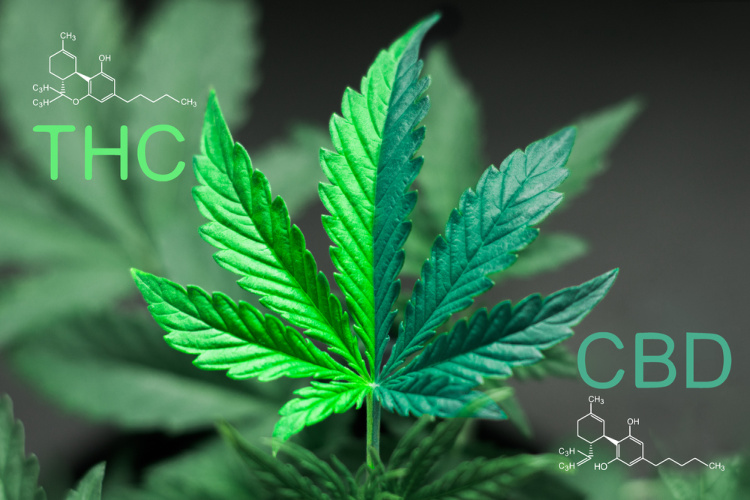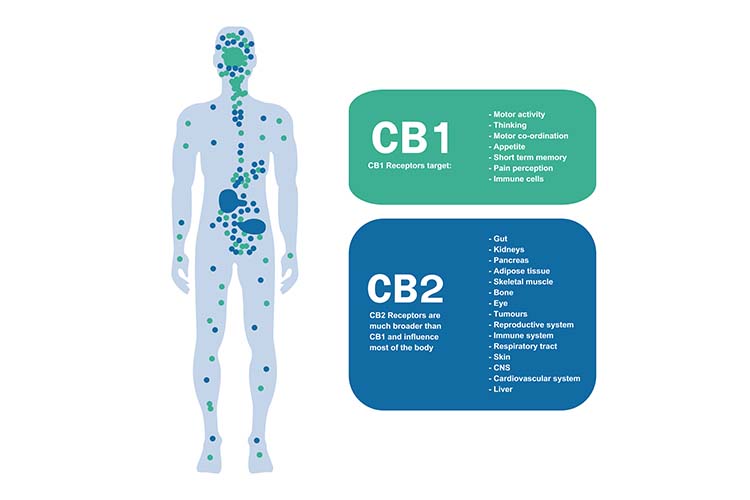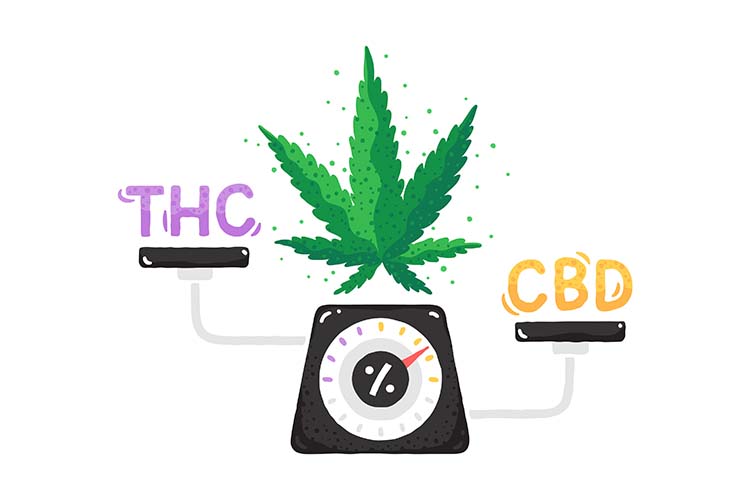If you follow developments in the world of cannabis at all, you’ve probably heard a lot about CBD lately: it’s good for anxiety; you can add it to your coffee; it’s completely legal!
The list goes on and on. CBD is a big deal, and for good reason. As the second most common cannabinoid—or “active ingredient”—in cannabis, it does as much as its more common cousin—good old THC—and then some.
But while these two compounds are incredibly similar, they interact with our bodies in very different ways. So let’s dive in—with validated facts, not rumors—to the straight dope about THC vs CBD.
THC vs CBD: What’s the Difference?
Strangely enough, on a molecular and chemical level, CBD and THC are nearly identical. In fact, it’s just a difference of one atom—the smallest possible particle of any chemical—that separates them. That said, that single atom makes a whole lot of difference.

From the user’s point of view, the major difference between THC vs CBD is that, unlike THC, CBD doesn’t make you feel high. In fact, of the 113 cannabinoids that have been identified in marijuana, THC is the only one responsible for intoxication (aka “being high”).
But beyond the euphoria of feeling stoned, behind the scenes, these two cannabinoids affect your body in very different ways. Generally speaking, THC is associated with feelings of sedation. Some of its other major effects include:
- Pain relief
- Relaxation of muscles
- Relief from insomnia
- Relief from side effects of cancer and other drugs, including loss of appetite and nausea
By comparison, CBD tends to have an energizing effect; that’s one reason many cannabis fans save it for daytime use. Some of its other major effects include:
- Pain relief
- Relief from anxiety and/or depression
- Relief from seizure disorders such as epilepsy
- Lessening of some inflammatory conditions such as Crohn’s disease
- Relief from symptoms of multiple sclerosis (MS)
- Reduction in symptoms from opioid withdrawal
You may have noticed that THC and CBD address some of the same symptoms—such as pain relief—or play a role in treating broadly similar ones, like relief from both insomnia and depression. What gives?
THC vs CBD: Better Together or Apart?
While some of us might prefer the euphoria associated with THC (and some of us would prefer no psychoactivity at all), these two cannabinoids may be more effective together than separate.

Why? Both THC and CBD interact with specialized receptors in your body called CB1 and CB2. While both cannabinoids will bind fairly easily to the CB2 receptor, CBD interacts quite differently than THC with the CB1 receptor (the one responsible for the euphoric feeling of being high). CBD doesn’t readily bind with CB1 receptors, but when it’s paired with THC, it can help strengthen some of THC’s qualities.
What does this mean for you? For one, CBD will tend to enhance some of THC’s pain-fighting and anti-inflammatory properties. For another, the presence of CBD actually helps diminish some potentially uncomfortable feelings caused by THC, which may include paranoia—or even psychosis—in extreme cases of overconsumption.
But how can you predict what sort of effect any given cannabis is going to have? That’s where ratios come in.
THC vs CBD: Why Cannabinoid Ratios Are so Important
All the cannabis we sell here is clearly labeled with the ratio between its two major cannabinoids, THC and CBD. While the ratios will change based on the specific characteristics of a given plant, we can separate them into three broad categories:
- High THC / low CBD (10-30% THC, trace amounts of CBD)
- Balanced CBD/THC (5-15% each THC and CBD)
- High CBD / low THC (5-20% CBD, THC under 5%)

At a high THC / low CBD ratio, you can expect much more of the sedation and euphoria associated with THC. For those sensitive to this cannabinoid, side effects may include dizziness, anxiety, and paranoia.
At a roughly balanced ratio, the effects of the two cannabinoids tend to equalize each other. Balanced ratios are generally best for pain relief, and for those who don’t mind some euphoric effects (but aren’t interested in full-blown intoxication).
Finally, there are high-CBD ratios. Many users report that the effects of this type of cannabis are almost imperceptible; perhaps you’ll feel a mild buzziness or extra focus. You’ll get little of THC’s muscle-relaxing power, but CBD’s pain and inflammation-fighting qualities will be in full effect.
There are many other ways to look at cannabis and assess its effect on our bodies. But understanding the difference between THC vs CBD is perhaps the most useful one. And once you do, you’ll be an educated consumer—a cannasseur!—and most importantly, you’ll know what kinds of cannabis best suits your needs.
Still want help? No problem! Schedule an appointment today and we’ll help you find the strain or product to help meet your needs.

